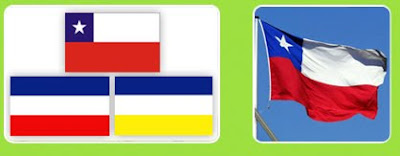Las 3 banderas de Chile
La tricolor, la de la estrella solitaria, la más linda de todas. Distintos apelativos para hablar de la bandera nacional, la cual se oficializó en 1818. Pero, ¿sabías que la bandera chilena actual no ha sido siempre la misma? Antes de nuestra bandera hubo dos más. Conoce más detalles sobre este tema. Durante la etapa de la Patria Vieja, por iniciativa de José Miguel Carrera, Chile tuvo su primera bandera, con tres franjas: azul, blanca y amarilla, que representaban la majestad, la ley y la fuerza, atributos del estado, según el literato Camilo Henríquez o, según otra teoría, el cielo, la nieve cordillerana y los campos de dorados trigales. Flameó por primera vez, el 4 de julio de 1812, bordada por Javiera Carrera, hermana de José Miguel, siendo ella quien inculcó el ideal de la independencia, a sus hermanos menores. El 30 de septiembre fue al igual que la escarapela, oficialmente adoptada, aunque ningún decreto legalizó su uso. La vida de este símbolo se extinguió, luego

Comentarios